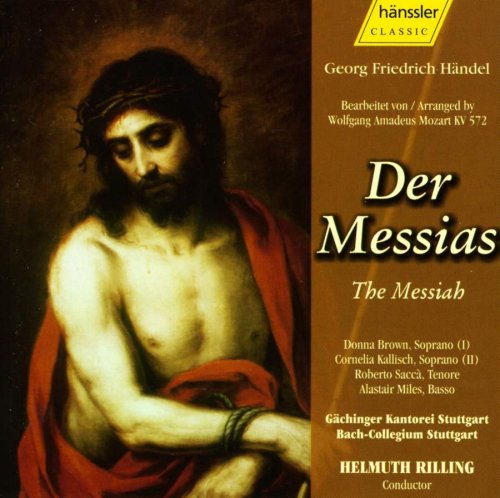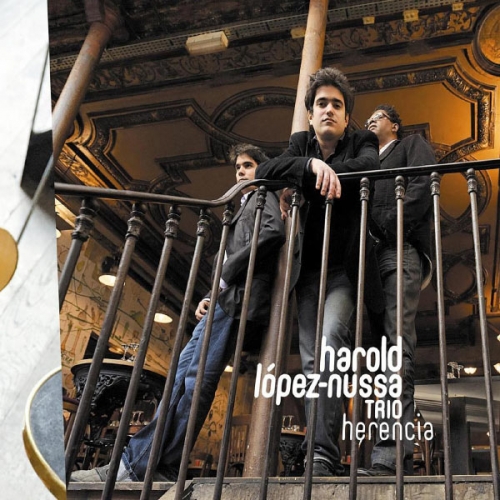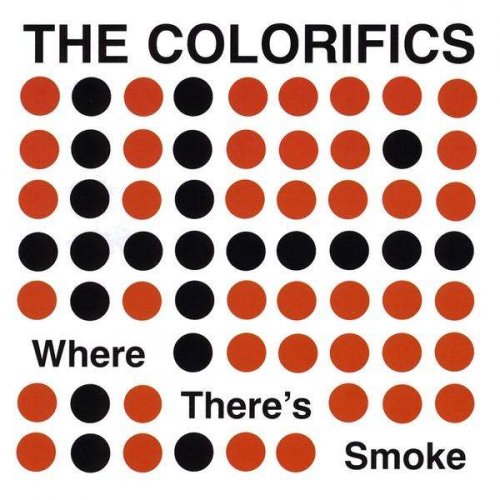Helmuth Rilling & Stuttgart Bach Collegium - Handel: Der Messias (2004)

Artist: Helmuth Rilling, Stuttgart Bach Collegium
Title: Handel: Der Messias
Year Of Release: 2004
Label: Hänssler Classics
Genre: Classical
Quality: FLAC (image + .cue, log, scans)
Total Time: 2:11:50
Total Size: 694 MB
WebSite: Album Preview
Title: Handel: Der Messias
Year Of Release: 2004
Label: Hänssler Classics
Genre: Classical
Quality: FLAC (image + .cue, log, scans)
Total Time: 2:11:50
Total Size: 694 MB
WebSite: Album Preview
In 1789, Baron Gottfried van Swieten, an Austrian diplomat, set in motion a series of events that would change the way Handel’s Read more would be performed for a century and a half. While posted to London in the 1760s, van Swieten had come under Handel’s spell and when he returned to Austria, he took several of Handel’s scores with him, including the first published full score to Messiah . In 1779 van Swieten began introducing Viennese audiences to the oratorios of Handel in a series of concerts given for the benefit of one of the Viennese musical charities, the Tonkünstler Society. The first of the Handel works presented in Vienna was Judas Maccabaeus.
A decade later van Swieten presented Mozart with a score to Messiah in order that Mozart might update the orchestration to the tastes of the times for the upcoming oratorio concerts. A copyist, using van Swieten’s score, painstakingly reproduced Handel’s original vocal lines, string parts, and tempo and dynamic markings on new music paper, leaving blank lines for Mozart to flesh out Handel’s original orchestra of oboes, bassoons, trumpets, drums, and strings with flutes, clarinets, and horns. He also revised the parts Handel allotted to the bassoons, liberating them from their original function as a continuo instrument. The original English libretto by Charles Jennens had been translated into German by one Daniel Ebeling. Van Swieten and Mozart also made a few cuts. They omitted the chorus “Let All the Angels of God” and the aria “Thou Art Gone up on High.” Mozart replaced the aria “If God Be for Us” with an accompanied recitative of his own composition. His truncated version of “The Trumpet Shall Sound” gives most of the demanding trumpet part to a horn. And Mozart wrote no additional accompaniments for several items.
But there was another problem: Van Swieten had to decide which of the various versions of several of the arias to use. He doubtless chose those he had come to know in London two decades earlier. For the most part van Swieten’s selections were those favored by Handel in the last years of his life and subsequently by his successors in presenting the annual Foundling Hospital performances, John Christopher Smith the Younger and John Stanley. Van Swieten also reallocated some of the solos to voices other than those that Handel specified. He divided the six tenor numbers beginning with “All They That See Him” between the two soprano soloists (as such, there was no alto soloist; those solos he allotted to the second soprano), and assigned the 4/4 version of “Rejoice Greatly” to the tenor. An extended version of “But Who May Abide” that was originally composed for the great Italian castrato Gaetano Guadagni was shifted to the bass soloist.
Ironically, the only one of these reassignments with no precedent in Handel’s own practice was the last; it was also the one that became standard during the 19th century and the first half of the 20th century. Handel originally set “But Who May Abide” as an aria for bass in 3/8 time without the animated prestissimo section that was composed specifically for the vocal talents of Guadagni. After he returned to the continent in 1753, Handel assigned the now-familiar setting to a female alto or, as more rarely performed, to a soprano. However, there isn’t a shred of evidence pointing to the notion that Handel ever intended this music for a bass soloist. This was, for the next century-plus, to become the “standard” version of Messiah and it was the score that functioned as a point of departure for an early 20th-century version put forth by an Englishman with the Dickensian-sounding moniker of Ebenezer Prout. Indeed, it was in this version that most of us baby boomers made Messiah ’s acquaintance.
Time constraints were also a concern. Since the Vienna performance had to fit a two-hour time window, it was necessary to trim the score by omitting some sections and shortening others. The chorus “Let All the Angels of God” and the aria “Thou Art Gone up on High” were dropped, and the aria “If God Be for Us” was replaced by Mozart with a recitative of his own composition.
Originally released around the time of the Mozart bicentennial in 1991, this two-CD set was deleted by Hänssler and reissued in 2004 in different packaging. It features Helmuth Rilling, who is noted for his interpretations of choral works from the Baroque and Classical periods, his Gächinger Kantorei, and the Stuttgart Bach Collegium. Their recording succeeds in stripping away the Victorian accretions and offers us a historically accurate and energy-filled reading of Handel’s most popular oratorio in the 1789 version prepared by Mozart. The choral sound is rich and full-bodied, but never weighty and bloated as one finds with many of the performances offered by amateur choral societies stateside. The agility of Rilling’s singers, their tone production, and their ability to color the vocal line remain unparalleled. They function like a well-lubricated and finely tuned engine, but they are never mechanical or lacking in expression. The soloists—who also participate in several of the choruses—are natural, passionate, and most effective in their presentation, and the Stuttgart Bach Collegium performs with energy, precision, and commitment from first note to last.
This paints an entirely different picture of a work that many of us treasure, but it is indeed a valid one when placed at its proper time. Mozart was by no means displaying irreverence toward Handel’s original, only re-texturing Messiah and tailoring it to meet the tastes of the time as well as the desires of Vienna’s Tonkünstler Society, and Helmuth Rilling is to be commended for offering us this insightful recording. -- FANFARE: Michael Carter
A decade later van Swieten presented Mozart with a score to Messiah in order that Mozart might update the orchestration to the tastes of the times for the upcoming oratorio concerts. A copyist, using van Swieten’s score, painstakingly reproduced Handel’s original vocal lines, string parts, and tempo and dynamic markings on new music paper, leaving blank lines for Mozart to flesh out Handel’s original orchestra of oboes, bassoons, trumpets, drums, and strings with flutes, clarinets, and horns. He also revised the parts Handel allotted to the bassoons, liberating them from their original function as a continuo instrument. The original English libretto by Charles Jennens had been translated into German by one Daniel Ebeling. Van Swieten and Mozart also made a few cuts. They omitted the chorus “Let All the Angels of God” and the aria “Thou Art Gone up on High.” Mozart replaced the aria “If God Be for Us” with an accompanied recitative of his own composition. His truncated version of “The Trumpet Shall Sound” gives most of the demanding trumpet part to a horn. And Mozart wrote no additional accompaniments for several items.
But there was another problem: Van Swieten had to decide which of the various versions of several of the arias to use. He doubtless chose those he had come to know in London two decades earlier. For the most part van Swieten’s selections were those favored by Handel in the last years of his life and subsequently by his successors in presenting the annual Foundling Hospital performances, John Christopher Smith the Younger and John Stanley. Van Swieten also reallocated some of the solos to voices other than those that Handel specified. He divided the six tenor numbers beginning with “All They That See Him” between the two soprano soloists (as such, there was no alto soloist; those solos he allotted to the second soprano), and assigned the 4/4 version of “Rejoice Greatly” to the tenor. An extended version of “But Who May Abide” that was originally composed for the great Italian castrato Gaetano Guadagni was shifted to the bass soloist.
Ironically, the only one of these reassignments with no precedent in Handel’s own practice was the last; it was also the one that became standard during the 19th century and the first half of the 20th century. Handel originally set “But Who May Abide” as an aria for bass in 3/8 time without the animated prestissimo section that was composed specifically for the vocal talents of Guadagni. After he returned to the continent in 1753, Handel assigned the now-familiar setting to a female alto or, as more rarely performed, to a soprano. However, there isn’t a shred of evidence pointing to the notion that Handel ever intended this music for a bass soloist. This was, for the next century-plus, to become the “standard” version of Messiah and it was the score that functioned as a point of departure for an early 20th-century version put forth by an Englishman with the Dickensian-sounding moniker of Ebenezer Prout. Indeed, it was in this version that most of us baby boomers made Messiah ’s acquaintance.
Time constraints were also a concern. Since the Vienna performance had to fit a two-hour time window, it was necessary to trim the score by omitting some sections and shortening others. The chorus “Let All the Angels of God” and the aria “Thou Art Gone up on High” were dropped, and the aria “If God Be for Us” was replaced by Mozart with a recitative of his own composition.
Originally released around the time of the Mozart bicentennial in 1991, this two-CD set was deleted by Hänssler and reissued in 2004 in different packaging. It features Helmuth Rilling, who is noted for his interpretations of choral works from the Baroque and Classical periods, his Gächinger Kantorei, and the Stuttgart Bach Collegium. Their recording succeeds in stripping away the Victorian accretions and offers us a historically accurate and energy-filled reading of Handel’s most popular oratorio in the 1789 version prepared by Mozart. The choral sound is rich and full-bodied, but never weighty and bloated as one finds with many of the performances offered by amateur choral societies stateside. The agility of Rilling’s singers, their tone production, and their ability to color the vocal line remain unparalleled. They function like a well-lubricated and finely tuned engine, but they are never mechanical or lacking in expression. The soloists—who also participate in several of the choruses—are natural, passionate, and most effective in their presentation, and the Stuttgart Bach Collegium performs with energy, precision, and commitment from first note to last.
This paints an entirely different picture of a work that many of us treasure, but it is indeed a valid one when placed at its proper time. Mozart was by no means displaying irreverence toward Handel’s original, only re-texturing Messiah and tailoring it to meet the tastes of the time as well as the desires of Vienna’s Tonkünstler Society, and Helmuth Rilling is to be commended for offering us this insightful recording. -- FANFARE: Michael Carter
Related Releases:

![Mehmet Ali Sanlikol - The Electric Oud Man Speaks and You Listen... (2026) [Hi-Res] Mehmet Ali Sanlikol - The Electric Oud Man Speaks and You Listen... (2026) [Hi-Res]](https://img.israbox.com/img/2026-02/28/0areq907i6p8nj96306jai1a0.jpg)

![El Calefón - Salir Del Agujero (2026) [Hi-Res] El Calefón - Salir Del Agujero (2026) [Hi-Res]](https://img.israbox.com/img/2026-02/26/sm3fq4x280rjvn4eh85ksne6j.jpg)
![Jeremy Pelt - Our Community Will Not Be Erased (2026) [Hi-Res] Jeremy Pelt - Our Community Will Not Be Erased (2026) [Hi-Res]](https://www.dibpic.com/uploads/posts/2026-02/1771945030_folder.jpg)



![Fabiano do Nascimento - Vila (2026) [Hi-Res] Fabiano do Nascimento - Vila (2026) [Hi-Res]](https://img.israbox.com/img/2026-02/26/o4t38f6qf24pvc3bqzanbhsz3.jpg)
